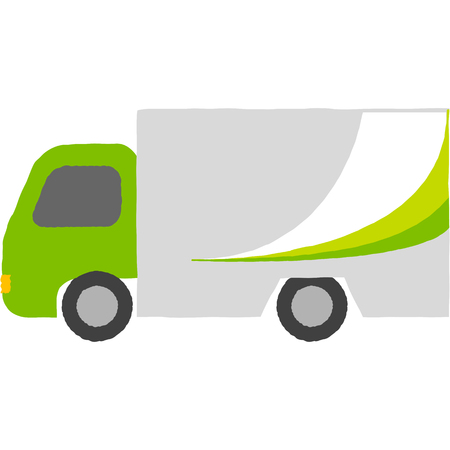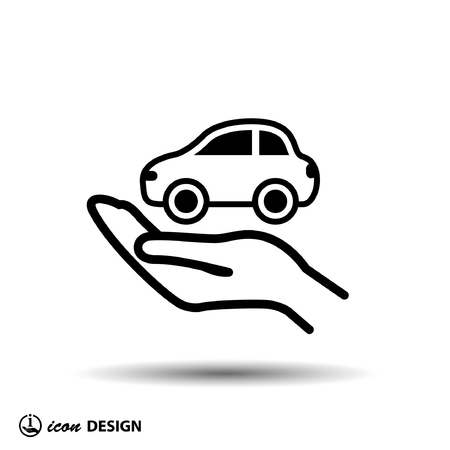Introduction to Temporary and Trade Vehicle Registrations
Temporary and trade vehicle registrations are crucial elements for motor traders operating in Britain. These special registrations allow dealers, garages, and other automotive businesses to move, test, or demonstrate vehicles legally on public roads before they are permanently registered. For many in the trade, understanding these types of registrations is essential not only for compliance with DVLA regulations but also for ensuring smooth day-to-day business operations. Temporary and trade plates enable flexibility, allowing businesses to handle new stock, customer vehicles awaiting sale, or cars needing repairs without the need for individual registration each time a vehicle is moved. In short, these registrations help motor traders save time and costs while keeping everything above board with UK law.
2. Who Qualifies as a Motor Trader?
In Britain, the term “motor trader” has a specific legal definition under UK law, which is crucial for anyone dealing with temporary and trade vehicle registrations. Generally, a motor trader is an individual or business involved in buying, selling, repairing, or servicing vehicles as part of their trade. This status is not limited to large dealerships; it also applies to smaller operations and sole traders.
To be officially recognised as a motor trader, certain criteria must be met. These include actively engaging in the motor trade business and having clear records that demonstrate regular transactions involving vehicles. Below is a table summarising the types of activities that qualify an individual or business as a motor trader:
| Activity | Qualifies as Motor Trading? |
|---|---|
| Selling vehicles (new or used) for profit | Yes |
| Repairing or servicing vehicles for customers | Yes |
| Buying vehicles to sell on (even occasionally) | Yes |
| Private sale of own vehicle (not for business) | No |
| Collecting and delivering vehicles for trade purposes | Yes |
| Leasing or hiring out vehicles as a business | Yes |
If you fall into any of these categories and your activity is for commercial gain rather than personal use, you are considered a motor trader under UK law. With this status come certain responsibilities. For instance, motor traders must ensure all vehicles under their care are properly registered and taxed when required, and they must maintain accurate records of all transactions. They are also responsible for adhering to regulations regarding temporary and trade plates, which allow them to move unregistered vehicles legally on public roads.
Understanding your role as a motor trader is essential before applying for temporary or trade registrations. Not only does it help you stay compliant with UK vehicle laws, but it also ensures smoother day-to-day operations within your business.

3. Types of Temporary and Trade Plates
Understanding the various types of temporary and trade vehicle registration plates is essential for motor traders operating in Britain. The DVLA offers specific plate options to meet different business needs, and knowing when to use each type ensures compliance with UK regulations and helps avoid unnecessary fines or delays.
Temporary Registration Plates
Temporary registration plates are issued when a vehicle is newly imported, built, or awaiting permanent registration. These are often referred to as ‘temporary permit plates’ or ‘temporary movement permits’. They allow vehicles to be legally driven on public roads while the full registration process is being completed. Motor traders typically use these for demonstration vehicles, vehicles awaiting sale, or those in transit between dealerships.
When to Use Temporary Plates
Temporary plates should be used only for the period specified by the DVLA—usually up to 14 days. They are not intended for long-term use or private driving outside of business needs. For example, if you are delivering a car from your forecourt to a customer’s home, temporary plates may be appropriate while waiting for the permanent V5C logbook.
Trade Plates
Trade plates are special red-on-white (or red-on-yellow for rear) plates issued exclusively to registered motor traders and vehicle testers. They are designed to make it easier for businesses to move unregistered or untaxed vehicles on public roads without registering each one individually. These plates must be clearly displayed and can only be used for business purposes such as test drives, delivery runs, or transferring vehicles between locations.
When to Use Trade Plates
You should use trade plates when moving vehicles that are in your legal possession as part of your trade activities—for instance, transporting a car from auction to your dealership, conducting a customer test drive, or delivering a sold vehicle before the new keeper’s details have been processed. Trade plates must never be used for private purposes or on vehicles hired out to customers.
Key Points to Remember
Each type of plate serves a distinct purpose: temporary plates are suitable for short-term legal use while awaiting registration, whereas trade plates facilitate day-to-day business operations within the motor trade. Always ensure you adhere strictly to DVLA guidelines regarding their display and permitted usage, as misuse can result in penalties or licence revocation.
4. Application Process for Trade Plates
If you are a motor trader in Britain, applying for trade plates is a straightforward process, but it’s important to follow the correct steps and provide all the necessary documentation. Here is a practical, step-by-step guide to help you through the application process with the DVLA.
Step-by-Step Instructions
- Check Your Eligibility: Ensure your business qualifies as a motor trader or vehicle tester. You must be involved in buying, selling, repairing, or testing vehicles.
- Gather Required Documentation: Prepare the following documents:
Document Description VTL301 Application Form The official DVLA form to apply for trade plates. Proof of Motor Trade Status Evidence such as invoices, business registration, or insurance. Identification Personal ID (driving licence or passport) and proof of address. Payment Method Cheque, postal order, or card payment details for the fee. - Complete the VTL301 Form: Fill in all sections carefully. Double-check information such as business address and contact details.
- Submit Your Application: Post your completed form and supporting documents to:
DVLA
Swansea
SA99 1DZAlternatively, you can hand-deliver it if you live near Swansea.
- Wait for Processing: The DVLA will review your application. Processing typically takes up to 4 weeks. They may contact you if further information is needed.
- Receive Your Trade Plates: If approved, you’ll receive your trade plates by post along with a certificate of entitlement.
- Contact Points: For queries during your application:
- DVLA Customer Service: 0300 790 6802 (Monday to Friday, standard office hours)
- Email Enquiries: use the web form at gov.uk/contact-the-dvla
- Local Motor Trade Associations: They can offer guidance and checklists.
Troubleshooting Tips
- If your application is delayed, check that all documents are included and legible.
- If you change address during the process, inform DVLA immediately to avoid lost post.
- If rejected, review feedback from DVLA and reapply with corrected information.
This step-by-step approach ensures you stay organised and compliant when applying for trade plates in Britain, making it easier to get on with running your motor trade business.
5. Rules and Restrictions for Using Temporary and Trade Plates
When it comes to using temporary and trade vehicle registrations in Britain, motor traders must adhere strictly to a set of legal requirements designed to ensure fair use, road safety, and compliance with DVLA regulations. Understanding these rules is crucial not just for staying on the right side of the law, but also for protecting your business from unnecessary fines or complications.
Legal Requirements for Use
First and foremost, only registered motor traders, vehicle testers, or those specifically authorised by the DVLA can apply for and use trade plates. It’s important to remember that trade plates are never a substitute for permanent registration; they are intended solely for specific business-related activities such as moving unregistered vehicles between premises, test driving with potential buyers, or delivering new cars directly to customers. Every use must be directly connected to the business.
Permitted Uses
Trade plates may be used when demonstrating a vehicle to a potential customer, transporting stock between sites, or taking vehicles for MOTs and repairs. Temporary registrations (such as temporary permits) are generally used when a vehicle is newly imported or awaiting full registration. Both types allow you to drive legally on public roads under strict conditions, but personal or recreational use is strictly prohibited.
Common Pitfalls to Avoid
One common mistake is using trade plates on vehicles that are leased out or loaned for personal use—this is not permitted under any circumstances. Another pitfall is failing to properly display the trade plates: they must be clearly visible at both the front and rear of the vehicle while in use. Additionally, forgetting that insurance requirements still apply can result in hefty penalties; trade plates do not provide automatic cover.
Staying Compliant
To stay compliant, always keep accurate records of which vehicles are driven under trade plates, who drives them, and for what purpose. Never allow anyone outside your business to use the plates, and ensure they are returned after each use. Regularly review DVLA guidance as rules can change—staying informed helps you avoid costly errors.
By understanding and respecting these rules and restrictions, motor traders can make full legal use of temporary and trade registrations while safeguarding their reputation and operations within Britain’s automotive industry.
6. Record-Keeping and Compliance
Maintaining accurate records is at the heart of compliance for motor traders using temporary and trade vehicle registrations in Britain. The Driver and Vehicle Licensing Agency (DVLA) expects all dealers to keep detailed documentation, not only to support their business operations but also to demonstrate adherence to UK law during inspections or audits. Best practices start with keeping a clear log of every vehicle that is assigned a temporary or trade plate, including the date, reason for use, and the name of the driver. This information should be stored securely and made available for inspection at any time.
What Records Must Be Kept?
Dealers are required to maintain a register of trade plates issued, including which staff members have access, where plates are kept when not in use, and how each plate has been used. For vehicles on temporary registration, keep copies of application forms, proof of insurance, correspondence with DVLA, and receipts for tax payments. All logs should include vehicle identification numbers (VINs), registration numbers, dates of use, and details of any customers involved in test drives or delivery.
Ensuring Ongoing Compliance
Regular internal audits are highly recommended. Set reminders to review records monthly to ensure no gaps or inconsistencies. Make sure your staff receive regular training on DVLA requirements and understand the consequences of misuse or poor record-keeping—non-compliance can result in hefty fines or even suspension from using trade plates. Invest in digital solutions if possible; electronic record systems reduce errors and make retrieving information much easier when needed.
Staying Up-To-Date With Regulations
UK vehicle registration laws can change, so subscribe to DVLA updates or join industry associations for timely advice. By keeping up with changes and fostering a culture of compliance within your team, you protect your business’s reputation and avoid legal pitfalls. Good record-keeping isn’t just about ticking boxes—it’s about building trust with both customers and regulators in the competitive British motor trade sector.
7. Frequently Asked Questions
What is a trade plate and who can use it?
A trade plate is a temporary registration mark issued by the DVLA, allowing motor traders and vehicle testers to drive unregistered or untaxed vehicles on public roads for business purposes. Only registered motor traders or businesses involved in the motor trade (such as dealers, repairers, or vehicle testers) are eligible to apply for and use trade plates.
Can I use trade plates for personal journeys?
No, trade plates must not be used for personal use, commuting, or any journey unrelated to your business activities. They are strictly for business operations such as delivering vehicles, test drives with customers, or moving cars between premises.
How long do temporary registrations last?
Temporary registrations typically last up to six months in Britain. They are intended for short-term use while awaiting permanent registration or during specific circumstances like import/export processes.
What documents do I need to apply for trade plates?
You will need to provide proof of your business’s status as a bona fide motor trader, evidence of trading premises in Britain, and details of your VAT registration (if applicable). Applications can be submitted online via GOV.UK or by post using form VTL301.
Are there insurance requirements when using temporary or trade plates?
Yes. All vehicles driven on public roads in Britain must be insured, even if they are using temporary or trade registrations. Ensure your motor trade insurance policy covers all drivers and types of journeys permitted under the law.
What happens if I misuse trade plates?
Misusing trade plates—such as allowing unauthorised drivers to use them, or using them for private journeys—can result in fines, prosecution, or loss of your right to hold trade plates. Always adhere strictly to the regulations set out by the DVLA.
Can customers drive vehicles with trade plates?
Customers may only drive vehicles with trade plates while accompanied by a representative of your business and for legitimate test drives related to a potential purchase. The vehicle must be fully insured for these purposes.


